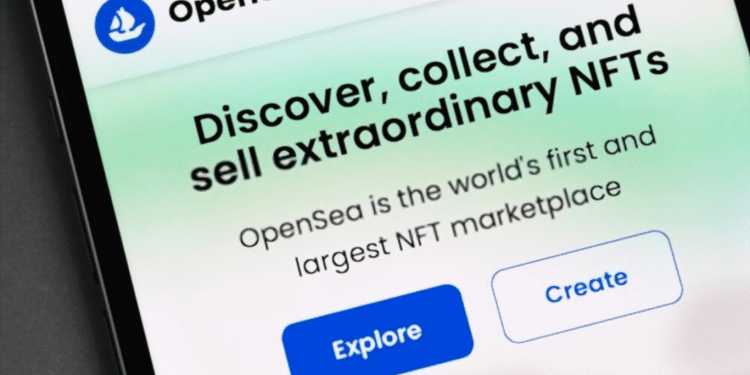In an announcement coming just this week, Opensea is on the move to start freezing sales for NFTs. This is an attempt to stop scammers and hackers from flipping ill-gotten tokens.
Based on the reports, OpenSea’s new system will make NFTs caught up in suspicious transactions “under review.” This will block people using the platform from buying them.
Stolen items and scams are significant issues in the NFT space.
Why The Decision by OpenSea?
Until now, OpenSea relied on people to report stolen NFTs before it could manually freeze transactions for that item. But given how fast these scams have been happening, the new policy is inevitable.
According to the company, in many cases, there is a resale of an NFT before the victim can react. The automated system launches in a “limited pilot phase,” getting more training over the next few months.
Of course, there’s only so much OpenSea can do — it can’t stop the flipping of NFT on another market without this sort of system.
However, (despite a steep drop in sales volume and number of transactions over the past year) it’s still the biggest NFT marketplace by quite a wide margin.
Due to such issues, the platform has come up with two new solutions to address the issue of stolen items and scams.
Malicious URL Detection and Removal
Opensea is launching a new system to proactively scan URLs shared on OpenSea to identify whether they are malicious. It starts by cross-checking a given URL against a blocklist of known malicious sites.
However, before there is the suspicion that they are wrong, suspicious behaviors often appear on Opensea. This makes the system go further by analyzing interactions and transactions to identify malicious behaviors like signature farming and wallet-draining.
Theft Detection and Disablement
Till the resolution, victims had to report stolen items flagged on Opensea. In most cases, however, thieves resell those items to unsuspecting buyers before taking action.
The solution aims to detect NFT theft in real-time and prevent further resales of suspected items to unsuspecting buyers.
There will be the temporary disabling of items in detected suspicious behavior. After that, the previous owner will be notified via email. The previous owner will share feedback to reinstate the object and enable the selling of the article again.
In the vein of keeping things from being stolen in the first place, OpenSea is also trying to cut down on malicious links shared on its platform by automatically detecting them via a list of known bad sites, as well as through simulated interactions and transactions.
Final Thoughts
While malicious URLs and theft detection can help reduce theft-related issues on OpenSea, the problem requires ecosystem-level solutions.
It requires working with marketplaces, wallet providers, and others to develop a holistic scam detection and prevention system.
Still, it’s a small step toward better security for a space that still struggles with scams.













